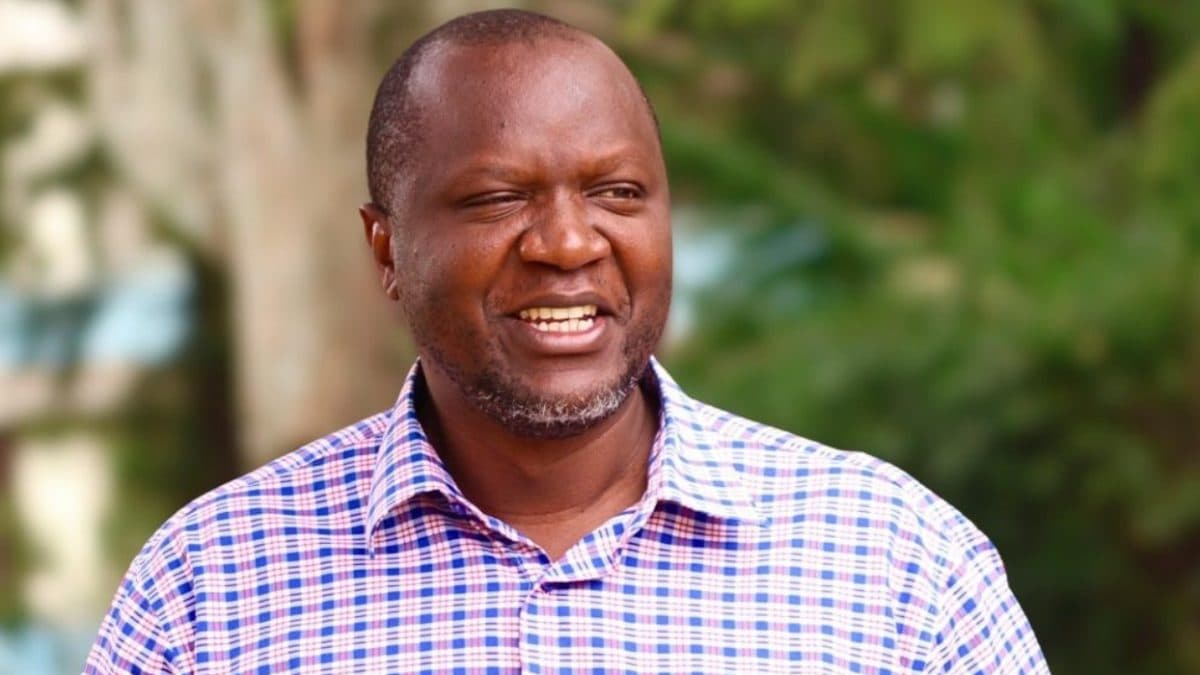We're loading the full news article for you. This includes the article content, images, author information, and related articles.
Constitutional lawyer Willis Otieno claims the government's plan to privatise the Kenya Pipeline Company (KPC) is a 'self-dealing' scheme designed to enrich President William Ruto, rather than a genuine move to transfer public assets.

Constitutional lawyer Willis Otieno has sharply criticised the government's proposed privatisation of the Kenya Pipeline Company (KPC), alleging the process is intended to benefit President William Ruto. In a statement released on X on Thursday, October 2, 2025, Otieno asserted that the sale constitutes 'self-dealing' and reduces the state to a mere broker in transferring public assets to private hands.
Otieno's statement highlighted concerns over the government's intention to retain a 35 percent stake in KPC, describing it as a 'smokescreen' that would obscure a shift in control and a loss of accountability, ultimately dispossessing Kenyans.
The Kenya Pipeline Company, established in 1973, is a state corporation wholly owned by the Government of Kenya, with 99.9% shareholding by the National Treasury and a fractional less than 0.1% by the Ministry of Energy and Petroleum. KPC is a critical player in East Africa's energy supply chain, operating an extensive pipeline network of 1,342 kilometres and handling approximately 14 billion litres of petroleum products annually. It transports refined fuel products across Kenya and the region, serving as a key logistical hub for East Africa.
The government's plan to partially privatise KPC through an Initial Public Offering (IPO) on the Nairobi Securities Exchange (NSE) has been in motion, with President Ruto announcing in July 2025 that the listing would occur by September 2025. This move is part of a broader government strategy to privatise several state-owned enterprises to attract private capital, deepen domestic financial markets, and reduce reliance on foreign debt.
The privatisation of KPC is being pursued under the Privatisation Act, 2023, which replaced previous legislation to streamline the process and enhance transparency. The Act establishes the Privatisation Authority, responsible for formulating and implementing the privatisation programme. The Sessional Paper No. 2 of 2025, tabled in the National Assembly on August 5, 2025, outlines the proposal for KPC's privatisation, aiming to raise KShs 100 billion to fund the 2025/2026 national budget.
The government's stated objectives for the privatisation include raising revenue for the national budget, empowering Kenyans to own a stake in profitable enterprises, promoting inclusive economic growth, and strengthening transparency and corporate governance through stock exchange listing. The proposal also includes an Employee Share Ownership Plan (ESOP) to ensure staff participation in the company's future growth.
While the government emphasizes the economic benefits and increased efficiency from private sector participation, Otieno's claims introduce a critical counter-narrative, suggesting potential self-enrichment at the highest levels. Analysts note that the development could influence public debate and policy execution, with stakeholders calling for clarity on timelines, costs, and safeguards.
Otieno's allegations of 'self-dealing' raise concerns about corruption and the equitable distribution of national assets. If proven, such claims could undermine public trust in government initiatives and potentially lead to legal challenges, similar to past instances where the Privatisation Act 2023 faced court scrutiny over public participation. The government's stated aim of reducing fiscal burdens and improving efficiency through privatisation could be overshadowed by perceptions of illicit enrichment.
The specific private entities or individuals who stand to benefit from the KPC privatisation, as alleged by Otieno, remain unverified. The detailed structure of the IPO and the mechanisms to ensure transparency and prevent conflicts of interest are also areas requiring further clarity.
The public and political response to Willis Otieno's allegations will be crucial. Further scrutiny of the KPC privatisation process, particularly regarding the transparency of the IPO and the ultimate beneficiaries, is anticipated. The government's response to these claims and its efforts to ensure a transparent and equitable privatisation will be closely watched.
The privatisation of KPC is part of a broader government initiative to privatise 35 state-owned enterprises, with plans for over 100 more. This programme follows the enactment of the Privatisation Act, 2023, which aims to reduce bureaucracy and increase private sector participation in the economy. Past privatisation efforts in Kenya include Safaricom, KenGen, and Kenya Commercial Bank.
Keep the conversation in one place—threads here stay linked to the story and in the forums.
Sign in to start a discussion
Start a conversation about this story and keep it linked here.
Other hot threads
E-sports and Gaming Community in Kenya
Active 9 months ago
The Role of Technology in Modern Agriculture (AgriTech)
Active 9 months ago
Popular Recreational Activities Across Counties
Active 9 months ago
Investing in Youth Sports Development Programs
Active 9 months ago